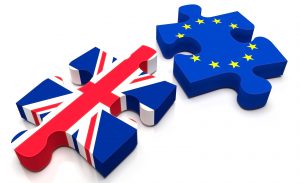The link between #Brexit self-reliance & Hannah Arendt’s musings on totalitarianism
 As a working journalist it is exhilarating, if enervating to read Hannah Arendt’s defense of her 1951 book The Origins of Totalitarianism as I try to understand the psycho-social implications of Brexit.
As a working journalist it is exhilarating, if enervating to read Hannah Arendt’s defense of her 1951 book The Origins of Totalitarianism as I try to understand the psycho-social implications of Brexit.
The Origins of Totalitarianism has been judged (by Le Monde, National Review and others) one of the most significant non-fiction books of the 20th century. Arendt says in her defense of her seminal work that its title is unfortunate. That she never set out to “write a history of totalitarianism but an analysis in terms of history”. That she did not seek to lay bare the roots of a system totally controlled by the government but to analyse the way elements of “Jew-hatred” crystallized into totalitarianism.
To me, Arendt’s defense of The Origins of Totalitarianism is important in the context of Brexit for the following reason. She quotes Montesquieu’s fear that Western civilization is “no longer guaranteed by laws although its peoples were still ruled by customs”. She quotes his preface to L’Esprit des Lois. “L’homme, des autres, est egalement capable de connaitre sa propre flexible, se pliant dans la societe aux pensees et aux lorsqu’on la lui montre, et d’en perdre jusqu’au sentiment la lui derobe,” she records. Which is to say man, this flexible being, who submits in society to the thoughts and impressions of his fellow-men, is equally capable of knowing his own nature when it is shown to him as it is and of losing it to the point where he has no realization that he is robbed of it.
Is something similar happening with the impulse to Brexit?
This is, let us be clear, the first country in the world to begin the first concrete attempt at the process of de-globalization. It is a brave, possibly disastrously heroic attempt by one country (till the recent, precipitous fall of the pound, the fifth largest economy) to raise barriers to the free flow of goods, services, capital and people. At a cost to itself.
It is the first real attempt to project self-reliance. But what does that really mean and what is the uniting thread that links it to Arendt’s defence of her work on totalitarianism? Is it the politicisation of the sense of victimhood? The seizing on scapegoats? The heavy-handed determination to try self-reliance, no matter its real cost in terms of prosperity?
An Economist blog recently weighed in on this notion of self-reliance. “What is this ‘self’?” it asked. “The typical Briton will not become more self-reliant as a result of Brexit. The chap behind the bar at the pub will not suddenly find himself cobbling his own shoes and milling his own flour because of the vote to leave the EU.”
The self, decided The Economist blogger is actually “a conservative sort of Englishness, which entails the rejection of London as well as of Brussels. And what is being purchased, it should be clear, is the ability to shut particular people out of Britain: those that are not enough like the community of selves on which the English intend to become more reliant. It is a vote against cosmopolitanism and multiculturalism. Nothing in the decline in sterling is going to make that adjustment less painful to those being shut out of the circle of British life. Neither should it make us optimistic that deglobalisation can occur without a great deal of accompanying ugliness.”
Is this a case then of man “losing it to the point where he has no realization that he is robbed of it”? That Arendt quote from Montesquieu sounds just about right for a Brexiteer hell-bent on a self-reliance that may be personally costly and sits uneasily with the interlinked, interdependent global village of the 21st century.

